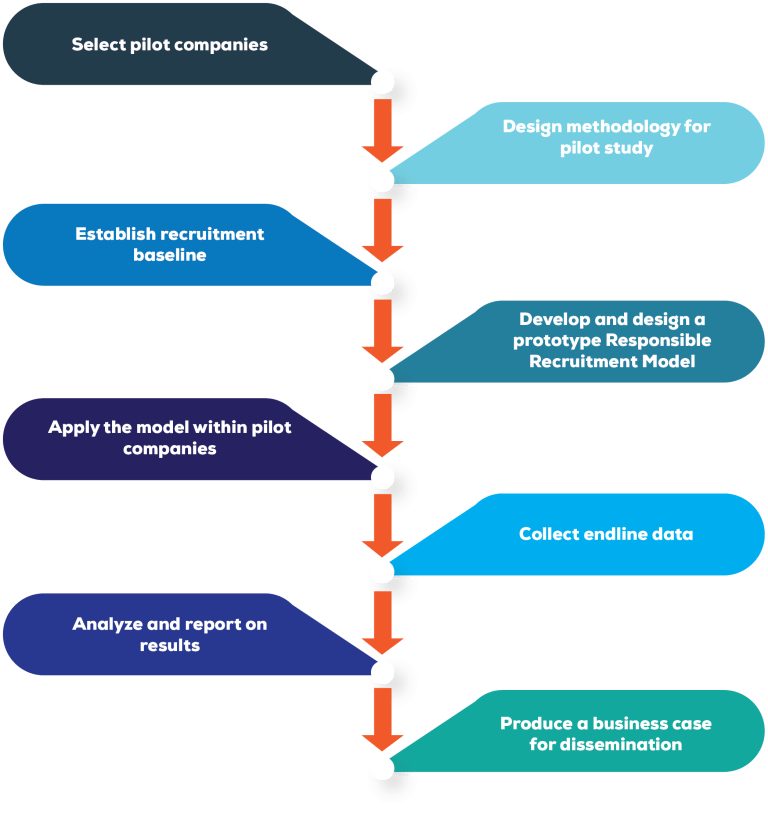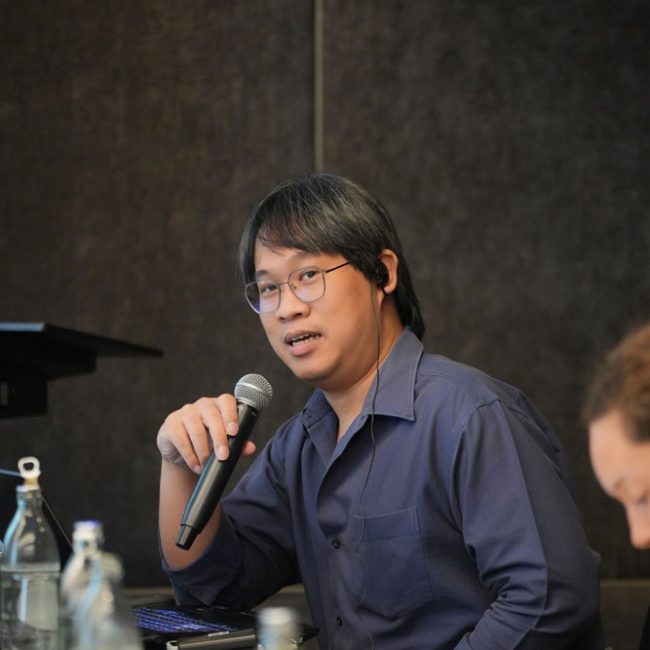Working with Industry to Pilot a Responsible Recruitment Model
The FAIR Fish project developed a Responsible Recruitment Model (RRM), as a pilot prototype intended to serve as a model for company-led action to address forced labor and human trafficking in the recruitment process, and for recruiters’ compliance with recruitment policies and procedures. The RRM is designed to enable Small-to-Medium Enterprises (SMEs) and recruiters to embed responsible recruitment processes in their business practice.
The RRM has been especially tailored to the needs of SMEs, which account for more than 99 percent of seafood processors in Thailand. While large companies often have extensive resources and processes in place to systematise and monitor their recruitment efforts and supply chain, SMEs were identified as needing more support to access the necessary information and resources.
What is Responsible Recruitment?
Responsible recruitment is defined a process that assists companies to find suitable workers in ways that:
- respect human dignity and fundamental human and labor rights;
- comply with national labor laws, and international conventions and standards; and
- uphold fairness, transparency, and accountability among all stakeholders.
The aim of responsible recruitment is to prevent, reduce, or eliminate human trafficking, forced labor, child labor, and other illegal and unacceptable practices throughout the pre-recruitment, recruitment, and post-recruitment phases of the labor supply chain.
The principles and concepts of responsible recruitment are especially applicable to recruitment relying on cross-border migration, because of the vulnerability of migrant workers, especially women.
Developing a Responsible Recruitment Model
The Path to Developing a Responsible Recruitment Model

Throughout the prototyping, international conventions, protocols, and guidelines from the UN, ILO, IOM, BSCI, and other relevant organizations, as well as Thai laws on labor, fisheries, and migrant workers, will be referenced. Moreover will be used.
The FAIR Fish Responsible Recruitment Model is based on:
- ILO General Principles for Fair Recruitment
- Business Social Compliance Initiative (BSCI) Standards
- Plan International’s gender equality and social inclusion (GESI) principles
- International conventions, protocols, and guidelines from the UN, ILO, and IOM
- Thai laws on labor, fisheries, and migrant workers
- A supply chain risk analysis-based system approach
Number of project reports on responsible recruitment disseminated
In terms of ethical recruitment, if you fully implement the ethical recruitment policy, you can make sure that you will get rid of forced labor and you can improve your recruitment, so that you will be more acceptable for customers and it will open more market opportunities for your company.
Mr. Worapol Pattananukij
Thai Tuna Industry Association
